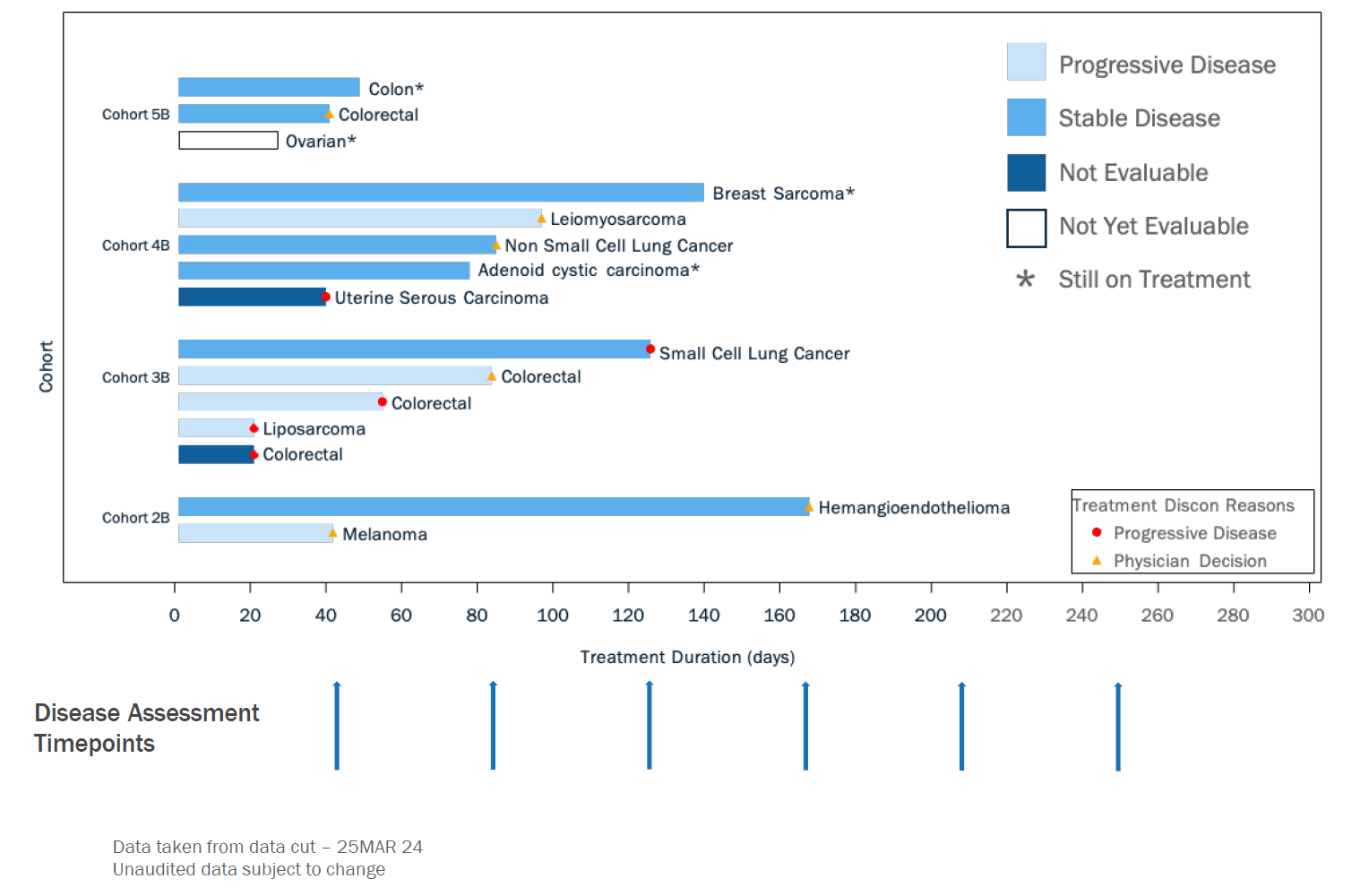
AACR 2024 – Vincerx overreaches
The company's comparison of its ADCs to Enhertu seems farfetched.
The company's comparison of its ADCs to Enhertu seems farfetched.

One of the first tests of Vincerx’s targeted conjugate technology has fallen flat. An AACR poster on VIP236, a small-molecule drug conjugate that targets αvβ3 and is the company’s most advanced asset, has revealed zero objective responses among 15 patients, prompting a 70% share price collapse this morning.
Vincerx said the result showed “exciting dose-dependent tumour activity”, and in a statement went as far as suggesting the potential for its technology to “improve the efficacy of Enhertu”. Such optimism seems well off the mark, and Vincerx, which went public via a Spac four years ago but which now has just six months’ of cash left, has more fundamental problems to sort out.
In addition to Vincerx’s technology still being some way off validation, the company has a pressing need to raise money. At the end of last year it reported a cash balance of $12.8m; its market cap fell today to only $35m, and based on the AACR data its chances of raising equity at anything other than a punishing discount seem remote.
Solid tumours
The AACR poster concerned a phase 1 study, which enrolled patients with solid tumours not preselected for αvβ3 expression; Vincerx earlier told ApexOnco that it would have been difficult to biopsy some solid tumours, but opined that αvβ3 was very commonly expressed.
If this is indeed the case then VIP236 doesn’t appear to work particularly well. The AACR poster, focusing on 15 patients given a new dosing schedule of up to 0.8mg/kg every three weeks, showed stable disease in seven subjects as the best outcome. Vincerx said this was a difficult patient population, and expressed hope for future higher doses yielding objective responses.
It’s a separate question whether a therapeutic window will remain open for significantly higher dosing. Testing the new dosing regimen was undertaken because an initial schedule, two days on and five days off, which treated five subjects, resulted in dose-limiting toxicities in two patients given 0.4mg/kg, according to the AACR poster.
Phase 1 trial of VIP236 given once every 3 weeks

Perhaps targeting αvβ3, a mechanism featuring no clinical oncology players beyond Vincerx, is simply a non-starter. While VIP236 is a small molecule conjugated to a camptothecin payload, Vincerx’s other clinical asset, VIP943, is an ADC, and the group has worked hard to position itself as an ADC player at a time when such technologies are attracting significant deal interest.
At an investor update yesterday Vincerx also highlighted progress with VIP943, which targets CD123 but plays in the tough space of acute myelogenous leukaemia. The update focused on safety, with Vincerx citing no dose-limiting toxicities among seven AML patients given VIP943 for 28 days, and presenting some pharmacokinetic data.
The first signs of whether VIP943 has any efficacy won’t emerge until around the EHA conference in mid-June; by then Vincerx will have to have found a way to secure more cash.
2046













